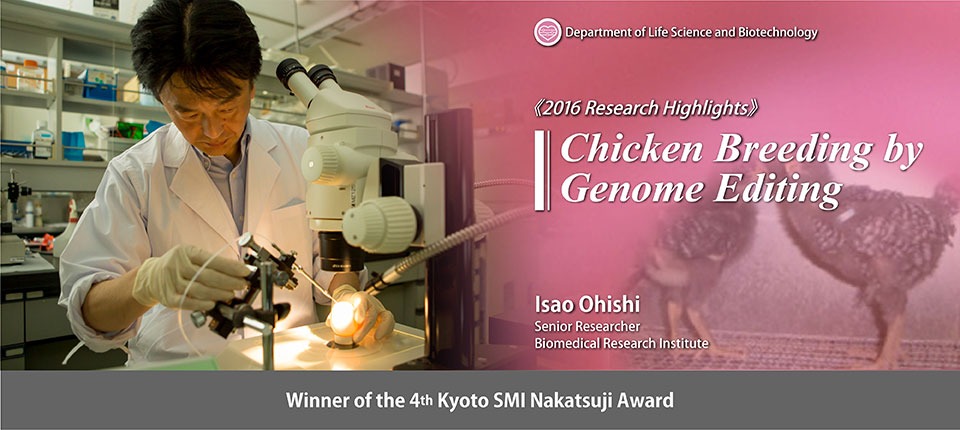
Point
To produce eggs that does not contain a major egg white allergen, gene mutated chickens were generated by genome editing.
 |
| Figure 1. Generation of genome-edited chickens that are deficient in the ovomucoid gene |
Method Developed by AIST Researcher
Through the world’s first application of the latest genome-editing technology to chickens, the researchers generated roosters and hens deficient in the gene of a major egg white allergen named ovomucoid. AIST conducted genome editing, generated the G0 chickens, and analyzed the results, whereas NARO and Shinshu University reared and bred the chickens.
Background
Genome-editing research has been dramatically sped up since the CRISPR/Cas9 system was introduced in 2013 for pinpoint genetic modifications. This system, however, was not applied to poultry, such as chickens, because their zygotes are difficult to manipulate. The researchers therefore conducted genome editing in chicken primordial germ cells and transplanted them into early embryos, which resulted in the generation of roosters and hens deficient in the ovomucoid gene.
Future Research Plans
The researchers are planning to investigate whether these chickens can produce eggs that do not contain the ovomucoid protein. They have already received business inquiries from specifically interested in low-allergy eggs, and/or in chicken genome-editing technology.
Contact
 |
|
Isao Oishi
Senior Researcher
Functional Biomolecular Research Group, Biomedical Research Institute
AIST Kansai, 1-8-31 Midorigaoka, Ikeda, Osaka 563-8577 Japan
E-mail: bmd-webmaster-ml*aist.go.jp (Please convert "*" to "@".)
|